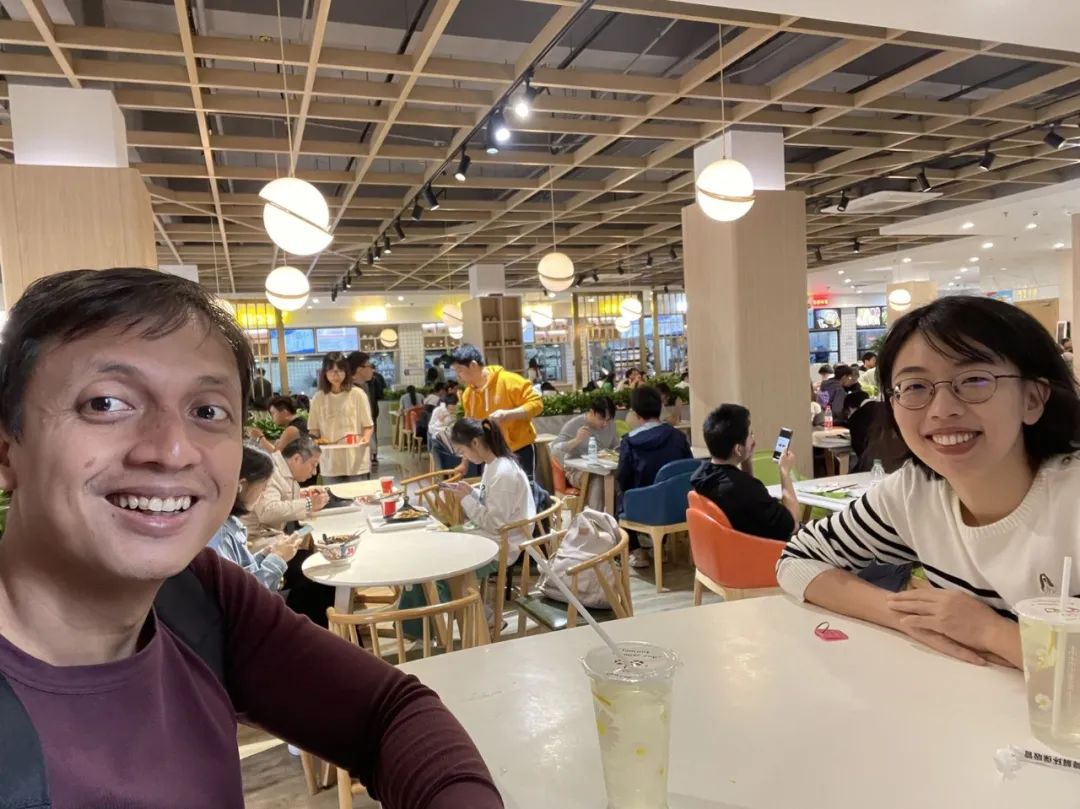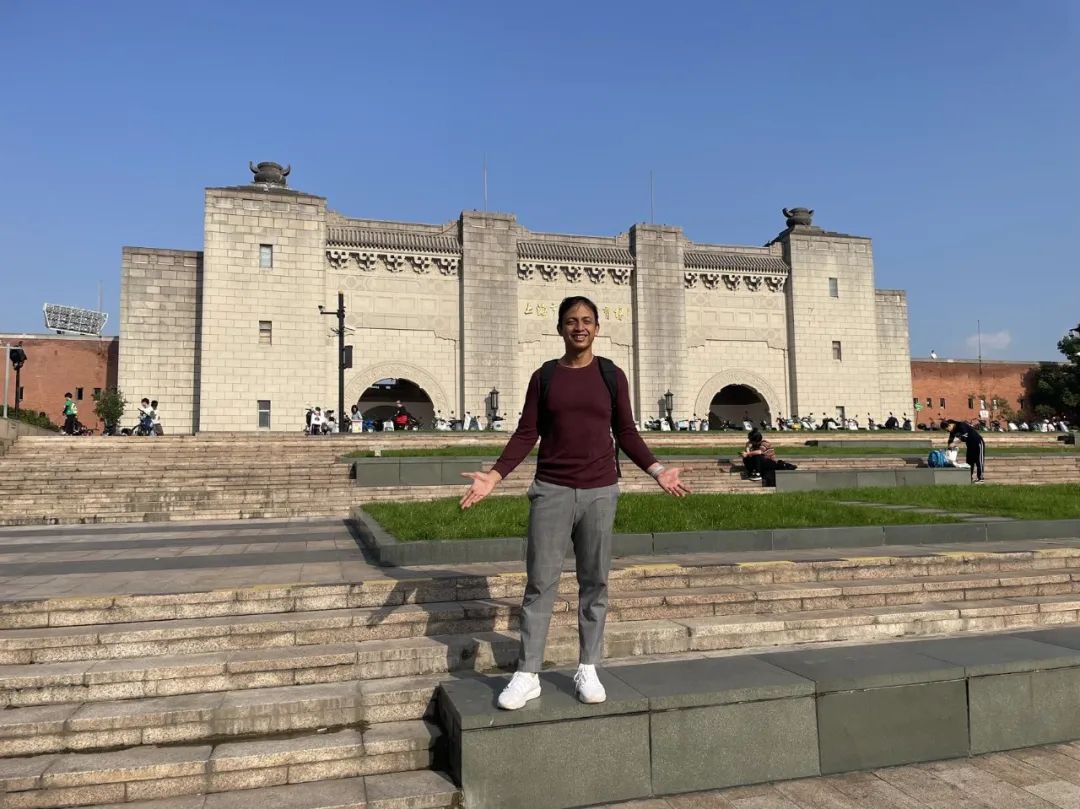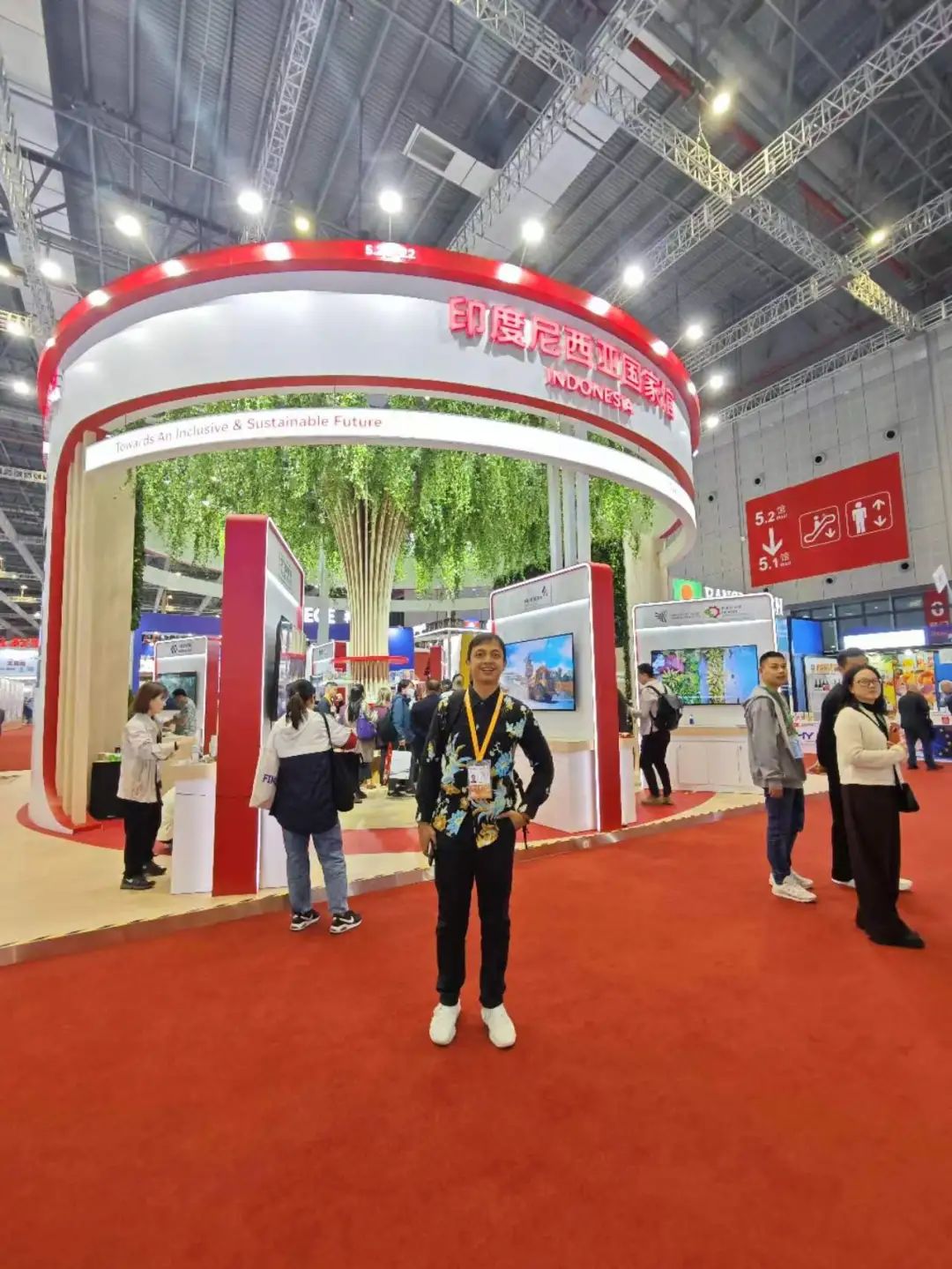作者:QUAN Ximin 发布时间:2024-11-16 15:39:06 来源:Fudan University+收藏本文
复旦-金光学者、印尼大学副教授Dr.Shofwan(Shofwan Al Banna Choiruzzad)于11月访问复旦大学,入驻复旦发展研究院。近日,复旦大学微信公众号采访了Shofwan博士,分享了他对复旦的印象、研究重点以及对印尼与中国之间学术合作与交流的期待。他的研究聚焦于印太地区的国家认知及区域合作,并希望通过与复旦的深入合作,加强印尼与中国之间的相互理解和人民之间的联系。以下为原文:
Fudan has always been a welcoming hub for international academic exchange, and we are proud to showcase the experiences of those who have come to share their knowledge and learn from our vibrant community.
Prof. Shofwan Al Banna Choiruzzad from Universitas Indonesia is visiting Fudan this November as a fellow through Fudan-Sinarmas Fellow Program, which aims to strengthen academic research and collaboration between Indonesian and Fudan scholars. His research focuses on the dynamics surrounding the development of the Association of Southeast Asian Nations (ASEAN) and its relationship with other ASEAN global and regional actors, including China.


Choiruzzad poses with a colleague inside a canteen on Jiangwan Campus
Q: What attracted you to Fudan?
Choiruzzad: I have been involved in various research and academic collaborations focusing on ASEAN-China relations. I was involved with some second track diplomacy processes such as the Network of East Asia Think Tanks (NEAT) and the Network of ASEAN-China Academic Institutes (NACAI). Fudan University is a leading institution in China and has played a key role in this process, especially the NACAI.
Since about eight years ago at regional forums in Thailand, I had the opportunity to work alongside scholars from Fudan. Since then I had opportunities to meet and engage with many scholars from Fudan, such as XUE Song from Center for China’s Relations with Neighboring Countries at Fudan University and YAO Wen and QI Huaigao from Institute of International Studies of Fudan University. Since our topic was pretty much connected, we often meet in conferences or seminars in Indonesia or other countries. When there was talk of the possibility of a deeper engagement with Fudan through this fellowship, I decided to take the opportunity. I have been in Washington DC for a visiting fellowship and learn about the US perspectives, so I think it is important to learn more about China’s perspectives from China’s academic community and policy circles. This, I think, is crucial to developing a stronger mutual understanding and people-to-people connectivity between Indonesia and China.

Choiruzzad poses in front of Jiangwan Stadium, Shanghai
Q: What’s your impression of Fudan?
Choiruzzad: The buildings, the environment, and all that, are fascinating of course. But the most impressive part is the people. The scholars at Fudan University are always enthusiastic about developing mutual understanding and better understanding between China and Indonesia.
We are witnessing the rise of China, the rise of middle powers, including Indonesia, and the possibility of creating a more equal and fair global order. To realize this, we need to understand each other better. This is why I find these academic initiatives important. The people of Fudan are very active in developing a bridge to better understand between Indonesia and China, and I’m very happy to be part of it.
Q: What does your research during this fellow program focus on?
Choiruzzad: My project examines how different countries perceive the Indo-Pacific region. The term has become a key regional construct, often viewed through a geopolitical lens. I’m exploring how countries, including Indonesia and China, understand the term, and how these interpretations shape political and economic cooperation in this region. Essentially, my research looks at how regional imagination is socially constructed and contested.
Q: The 2019 ASEAN Outlook on the Indo-Pacific (AOIP) aspires to offer a genuine and unified perspective, reflecting ASEAN’s comprehensive and cohesive vision for the Indo-Pacific region. How can it, according to your research, be used to strengthen cooperation between Indonesia and China?
Choiruzzad: The AOIP’s strategic role is to advocate regional cooperation in the Indo-Pacific, emphasizing inclusivity rather than conflict or great power rivalry. ASEAN should be at the center, encouraging great powers including China and the U.S. to listen more to non-Great Powers for mutual benefit. However, concrete action is needed to bridge the gap between strategic documents and on-the-ground initiatives. ASEAN can leverage its outlook to connect various regional connectivity initiatives, such as the Belt and Road, Japan’s infrastructure projects, and U.S. economic frameworks, transforming them from competing efforts into cooperative projects.
Q: What are your expectations for future collaborations and academic exchanges with Fudan?
Choiruzzad: I’m excited to continue working with Fudan scholars because we share a commitment to strengthening the relationship between China and Indonesia. I’ve already discussed potential research collaborations with young scholars and future connectivity initiatives for ASEAN 2025. I’m also looking forward to institutional partnerships, including student exchanges and possibly joint academic programs between Universitas Indonesia and Fudan.

Choiruzzad poses in front of the Indonesia Booth at CIIE
Q: You’ve been invited to attend this year’s China International Import Expo (CIIE). What do you think of this event?
Choiruzzad: An event of this scale is spectacular. As a scholar, I usually work with data and statistics, but the expo provides a unique opportunity to see real-world economic interactions. It was exciting to hear perspectives from business actors from different countries.
Q: Do you have any plan besides research during your stay?
Choiruzzad: I enjoy history a lot, and Shanghai is fascinating with its rich historical background. China’s ancient civilization offers so much to explore. Also, I’m hoping to visit cities like Xi’an. If possible, I also want to learn directly from short courses on China’s experiences for development.